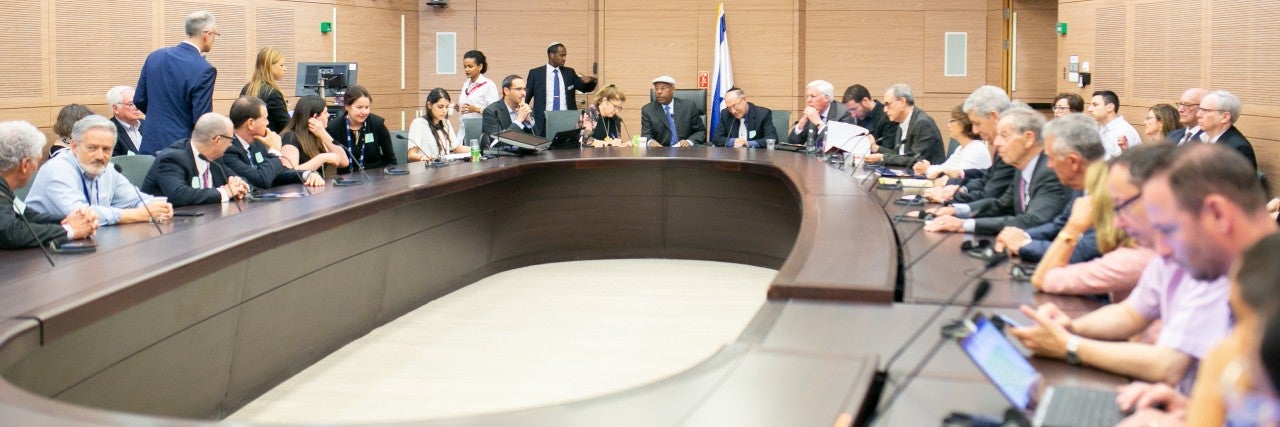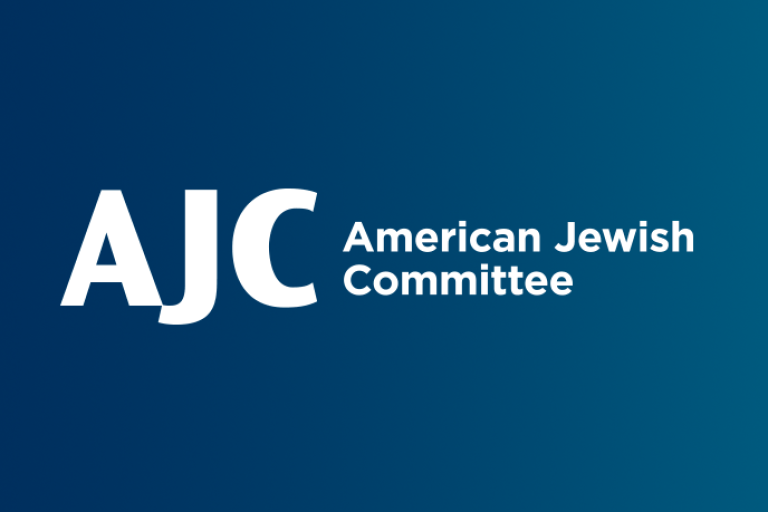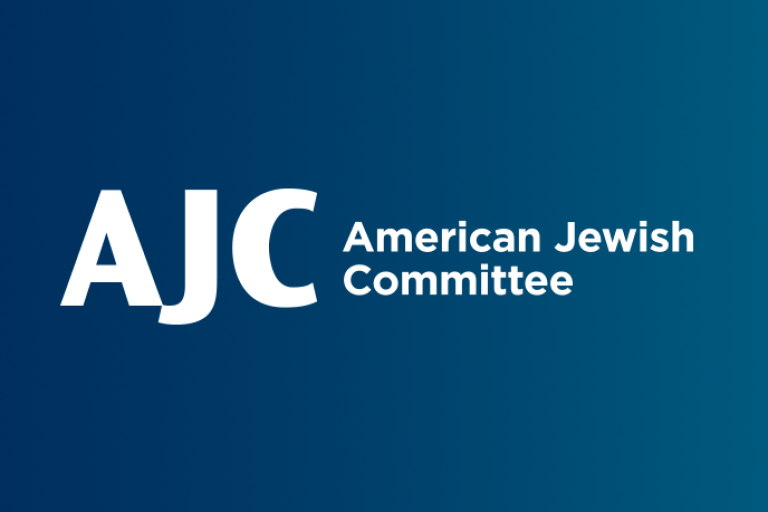June 12, 2018 — Jerusalem, Israel
At a meeting between the American Jewish Committee's Jewish Religious Equality Coalition (J-REC) and members of Israel’s Knesset, J-REC representatives expressed concern over the growing rift between Diaspora Jews and Israel, especially about younger Jews distancing from Israel.
The meeting took place during the AJC Global Forum, which is convening for the first time in Jerusalem.
MK Avraham Neguise (Likud), chairman of the Knesset’s Committee for Immigration, Absorption and Diaspora Affairs, opened the meeting by acknowledging the importance of Diaspora Jewry to Israel. “The Diaspora is a strategic asset for Israel. Every Jew in the Diaspora should see Israel as his homeland and should feel free to come here. We are all one family.”
Neguise, who is himself an Ethiopian immigrant, also mentioned that Diaspora Jewry has had a special role in absorbing new immigrants.
“As a former immigrant I know the role of Diaspora Jewry in the ingathering of exiles to Israel. You played, are playing and will play a critical role in this for Ethiopians, the Russian Jewish community and all over the world,” he said.
AJC President John Shapiro raised the key issue that bothers many J-REC representatives. “I worry about the next generation. When the Chief Rabbi says we’re worse than Holocaust deniers we (the older generation) get annoyed, but others back off,” he said.
Shapiro went on to recount his own personal experience. His son was active in countering anti-Israel propaganda on campus but after a decision to freeze development of the Western Wall’s pluralistic prayer area he called his father, and said, “Why are we even doing this, they’re pushing us away.”
Shapiro warned the MKs, “You are losing the next generation.”
Dov Zakheim, chair of J-REC, said Israel faces battles on three fronts – the Palestinian front, the Iranian front and the Diaspora front, which he called the Western front.
“All is not quiet on the Western Front,” said Zakheim. “It’s not just that the Rabbinate has reneged on the Kotel deal. It proposes now to centralize, to control entirely marriages, divorces, conversions, Jewish life in the Diaspora.”
Zakheim was referring to two points of contention between Israel’s religious establishment and diaspora Jewry. The first is a plan, approved by the Israeli government in January 2016, and opposed by some religious parties along with the Chief Rabbinate, to upgrade the southern extension of the Wall to allow for egalitarian services, a single point of access and entry, and a joint authority including representatives from each of the religious movements to supervise what takes place at the southern extension. The second refers to attempts by Israel’s religious establishment to extend their authority abroad.
Zakheim noted the dangers these controversies pose. “First of all, it divides us. We are one people. Second, it divides us into classes, we have first class Jews that the Chief Rabbinate recognizes and then there is everyone else who are second class (Jews).”
Marvin Israelow, chair of AJC’s Israel Office, spoke in a similar vein about how Reform rabbinical students spend their first year of studies at their Israel campus. But, after the way they are treated. “They have to undergo a reeducation process when they go back to the United States to change the negative attitude they come back with,” said Israelow. “These rabbis are our chief educators in the United States.”
J-REC representative Shonni Silverberg observed, “Many young Jews are not assimilating, but what’s happening, and I despair about this, is that their definition of Jewishness does not include Israel.”
MK Rachel Azaria (Kulanu) assured the J-REC representatives they were not alone. “Most Israeli Jews don’t want the Rabbinate, 80% (want to end the Rabbinate’s monopoly).”
But she acknowledged that Israeli and American Jews may not be working with the same timetable for change. “We want change, but with the politics we can’t (do it right away). It will take 10 to 15 years, but our tipping point is different from your tipping point.”
Neguise ended the meeting by noting that he “comes from a community that had to struggle for recognition. Last year I boycotted the government when they wouldn’t bring over Ethiopians whose father was Jewish (but the mother was not) and now they are here.”
The Jewish Religious Equality Coalition (J-REC), created and spearheaded by AJC in 2014, is a broad-based coalition of Modern Orthodox, Conservative, Reform, Reconstructionist, and secular American Jews dedicated to the realization of full religious equality in the Jewish state, and is mobilizing support for the creation of alternatives to the Chief Rabbinate on personal status issues.


